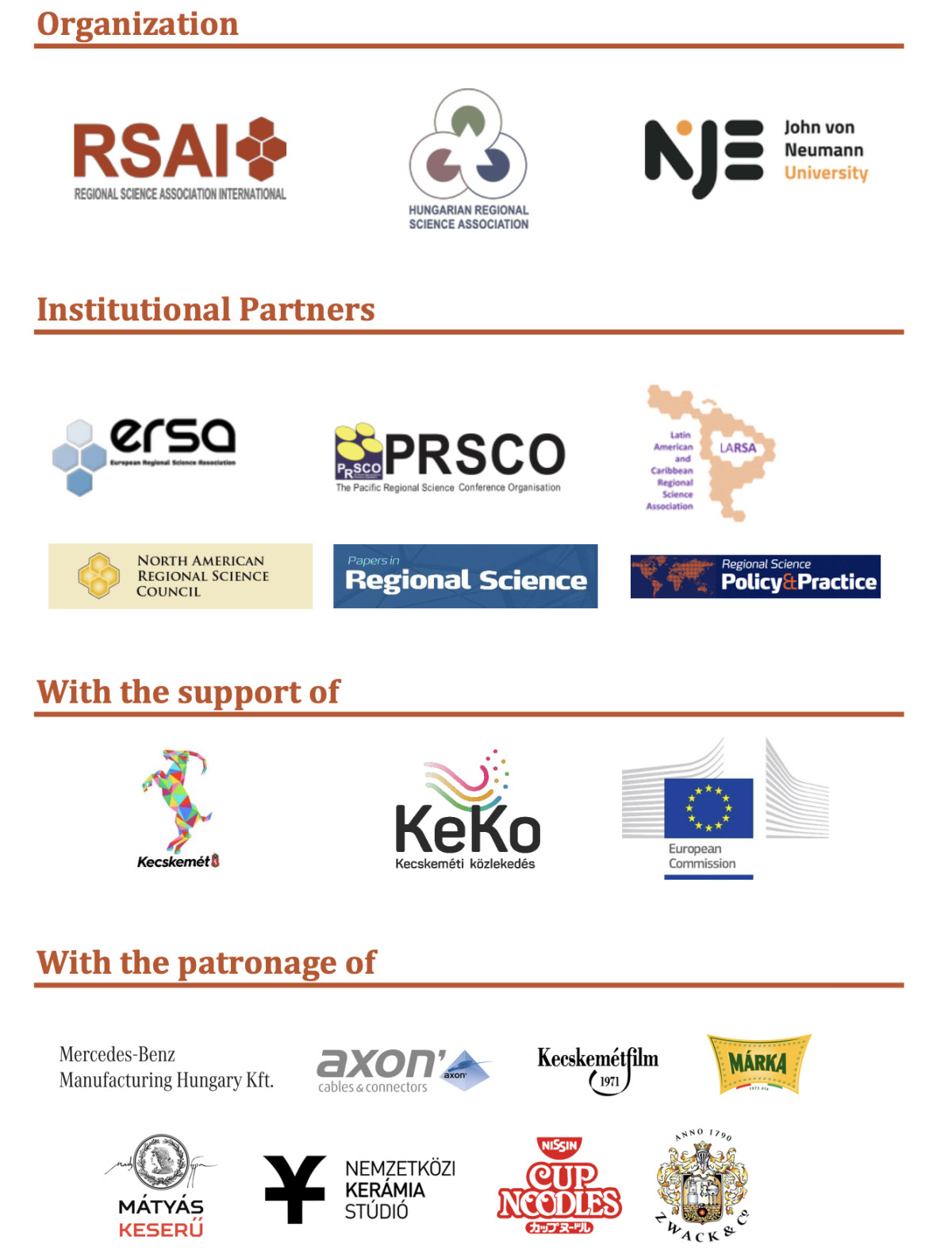ORGANISERS
President, RSAI
Hans Westlund, KTH Stockholm
Executive Director, RSAI
Andrea Caragliu, Politecnico di Milano
Chair, Local Organising Committee
Balázs Forman, John Von Neumann University
József Kárpáti, John Von Neumann University
THE REGIONAL SCIENCE ASSOCIATION INTERNATIONAL
Founded in 1954, the Regional Science Association International (RSAI) is an international community of scholars interested in the regional impacts of national or global processes of economic and social change. The work of RSAI draws on the expertise of many different disciplines and this multi-disciplinary approach helps to facilitate new theoretical insights for tackling regional problems. In turn this provides an increasing opportunity for academics within the Association to engage more fully with planners and policy makers. Building on a strong foundation of quantitative methods, regional science is at the cutting edge of research into new model design for regional analysis and impact assessment.
THE HUNGARIAN REGIONAL SCIENCE ASSOCIATION
The Hungarian Regional Science Association (HRSA) was established in February 2002 by proposal of Regional Science Committee of the Hungarian Academy of Sciences.
HRSA has more than 300 registered members associated with various organizations.
The Association’s organization follows the regional principle: in all the seven regions of Hungary and in six regions abroad where Hungarian speaking regional specialists are working the regional organizations have already been established. The Association also serves as the Hungarian section of the European Regional Science Association.
JOHN VON NEUMANN UNIVERSITY
John von Neumann University, based in Kecskemét, is one of the youngest tertiary educational institutions in Hungary. However, the university’s legal predecessors have a history going back many years and boast longstanding traditions. It received the title University of Applied Sciences in 2016, since when it has become the leading higher education institute in the region.
With almost 4,000 students, it offers programmes in technical sciences, economics, agriculture; achieve significant results in terms of research and innovation; and fosters extensive business and institutional networks. Building on dynamically expanding international connections, it aims to achieve greater visibility in the globalised world of higher education.

